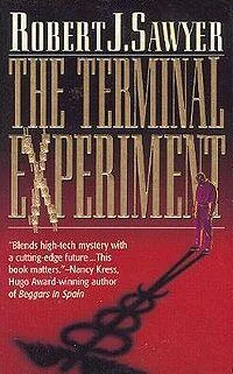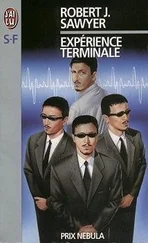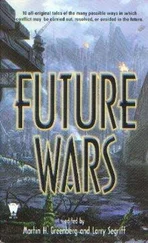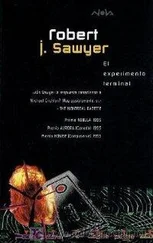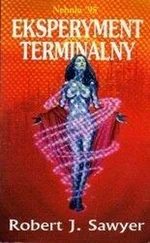They left the Lash Miller Building and started walking north toward Bloor Street. “And what do you want to find out?” asked Cathy.
“I want to find out how they determine that someone is dead before they begin carving out his organs.”
They’d been searching for about an hour when Cathy came over to the carrel Peter was sitting in. “I’ve found something,” she said.
He looked up expectantly.
She pulled up a chair and balanced a heavy volume on her lap. “This is a book on transplant procedures. The problem with transplants, it says, is that they never take the body off life-support. If they did so, the organs would begin to deteriorate. So, even though the donors are declared dead, their hearts have never stopped. As far as the electrocardiogram is concerned, the supposedly dead donor is as alive as you and me.”
Peter nodded excitedly. This was exactly what he’d been hoping to find. “So how do they decide if the donor is dead?”
“One way is to squirt ice-cold water into his ear.”
“You’re kidding,” he said.
“No. It says here that will completely disorient a person, even if they’re in a deep coma. And it often causes spontaneous vomiting.”
“Is that the only test?”
“No. They also rub the surface of the eyeball to see if the donor tries to blink. And they pull out the — what do you call it? That breathing tube?”
“The endotracheal ventilator.”
“Yes,” she said. “They pull that out for a short time to see if the body’s need for oxygen will cause it to start breathing again on its own.”
“What about EEGs?”
“Well, this is a British book. When it was written, their use for determining death wasn’t required by law.”
“Incredible,” said Peter.
“But surely they have to use them here in North America, don’t they?”
“I imagine so, in most jurisdictions.”
“And this donor you saw today would have flat-lined before they ordered his organs removed.”
“Probably so,” said Peter. “But in the course I took on EEGs, the prof talked about people who had completely flatlined subsequently showing some brain activity.”
Cathy paled somewhat. “Still,” she said, “even if the donor is still alive in some small sense…”
He shook his head. “I’m not sure it’s such a small sense. The heart is beating, the brain is receiving oxygenated blood, and there are signs that pain is being experienced.”
“Even so,” said Cathy, “even if all that’s true, it must also be true that a brain that’s shown no activity for an extended period must be severely damaged. You’re talking about a vegetable.”
“Probably,” said Peter. “But there’s a difference between harvesting organs from the dead, and ripping them from the bodies of the living, no matter how severely mentally handicapped that living person might be.”
Cathy shivered and went back to searching. She soon found a three-year study of cardiac-arrest patients at Henry Ford Hospital in Detroit. One-quarter of the patients diagnosed as having no heartbeats did in fact still have them, as detected by catheters inserted into their bloodstreams. The report hinted that patients were being declared dead prematurely.
Meanwhile, Peter found several relevant London Times articles from 1986. Cardiologist David Wainwright Evans and three other senior doctors were refusing to do transplant operations there because of the ambiguity over when the donor is actually dead. They’d set out their concerns in a five-page letter to the British Conference of Royal Medical Colleges.
Peter showed the articles to Cathy. “But the conference dismissed their concerns as unfounded,” she said.
Peter shook his head. “I don’t agree.” He met her eyes. “It’ll say in Enzo Bandello’s obituary tomorrow that he died from head injuries sustained in a motorcycle accident. That’s not true. I saw Enzo Bandello die. I was right there when it happened. He was killed by having his heart carved out of his chest.”
FEBRUARY 2011
Detective Sandra Philo continued to sift through Peter Hobson’s memories. Starting after his graduation in 1998, he had worked for several years at East York General Hospital, then had founded his own biomedical equipment company. Also in 1998, he and Cathy Churchill, still very much in love, had gotten married. Cathy had given up her interest in chemistry; Peter didn’t yet understand why. Instead, she now worked in a non-creative position for Doowap Advertising.
And every Friday after work, Cathy and her coworkers went out for a drink. Actually, as Sandra discovered, although they referred to their intentions in the singular, the reality was decidedly plural: drinks. And by the end of the evening, several of them always managed to successfully conjugate the verb form: drink, drank, drunk — often of the praying-to-the-porcelain-god variety…
It was cold and dark, a typical February evening in Toronto. Peter walked the seven blocks from the four-story Hobson Monitoring building to The Bent Bishop. Cathy’s coworkers weren’t really his sort, but he knew it was important to her that he make an appearance. Still, Peter always tried to arrive after everyone else; the last thing he wanted to do was make small talk with an account manager or an art director. There was something superficial about advertising that turned him right off.
Peter pushed open The Bishop’s heavy wooden doors and stood in the entryway, his eyes adjusting to the dim interior. On his left was a blackboard with the daily specials printed on it. On his right was a poster for Molson’s Canadian depicting a curvy woman in a red bikini with maple leaves crowning each of her upturned breasts. Sexism in beer advertising, thought Peter: past, present, probably forever.
He stepped out of the entryway and scanned the pub, looking for Cathy. Long gray tables at random angles were tightly packed throughout the room, like aircraft carriers in an oceanic traffic jam. In the background, two people were playing darts.
Ah, there they were: clustered around a table positioned against a wall. Those whose backs were to the wall — decorated with a poster of another Molson’s bimbo — were seated on a couch. The rest were in captain’s chairs, drinks in hand. Some were sharing a bowl of nachos. The table was big enough that two or three separate conversations were going on, the participants shouting to be heard above the blaring music, an old Mitsou tune played louder than the speakers could really handle.
Cathy was a very bright woman — that had been the first thing that had attracted Peter to her. It was only later that he redefined his own standards of feminine beauty, which had tended toward bouncy blondes a la the beer ads, to find her jet-black hair and thin lips beautiful. She was sitting on the long couch, two of her coworkers — Toby, was it? And that lout, Hans Larsen — on either side of her, so that she couldn’t get out unless one of them moved first.
Cathy looked up as Peter approached, smiled her radiant smile, and waved. Peter still felt a thrill when she smiled. He wanted to sit next to her, but the current deployment of bodies made that impossible. Cathy smiled again, love plain on her face, then shrugged apologetically and gestured for him to take an unused chair from the adjacent table. Peter did so, and Cathy’s coworkers shifted along to make room for him. He found himself sitting between one of the painted ladies on his left — the secretaries and production coordinators who wore too much makeup — and the pseudointellectual on his right. As always, Pseudo had a bookreader sitting in front of him, the cover of the datacard visible through the window in the reader’s shell. Proust. Ostentatious bastard.
Читать дальше
